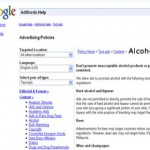 Washington — Search titan Google Inc. refusing to take a break until it has made every bit of information in the universe searchable, made another stride towards ingesting the entire world’s printed knowledge. It has just announced plans that…
Washington — Search titan Google Inc. refusing to take a break until it has made every bit of information in the universe searchable, made another stride towards ingesting the entire world’s printed knowledge. It has just announced plans that…
it is teaming up with a slew of publishers to extend its book search program by adding a number of magazines to its databases, which will give old magazines new life over the web.
The Internet search giant, in a statement, said that in addition to large number of books and newspapers, Google Book Search has now begun digitizing millions of pages from famous magazines like: New York Magazine, Popular Mechanics, Popular Science, Ebony and other publications.
Users can now easily be able to find current and old magazines, like New York Magazine, Popular Mechanics and the Bulletin of the Atomic Scientists, through Google Book Search, according to a blog post by Dave Foulser, a software engineer at Google.
”Eventually, as we scan more articles, you will see more and more magazines appear in Google Book Search results,” wrote Foulser. “Finally, we will also begin blending magazine results into our main Google.com search results, so you may begin finding magazines you did not even know you were looking for. For now, you can restrict your search to magazines we have scanned by trying an advanced search.”
Google began digitizing books since 2006.
So far, we have digitized more than a million articles from titles ranging from Men’s Health, Baseball Digest and Runner’s World to local publications like Atlanta Magazine and Indianapolis Monthly, with many more to come,” Google said.
The magazines have been scanned and digitized and are archived using a related interface to the one Google recently developed for archived newspapers.
Users can browse through different covers of a magazine or dive into a specific issue and turn the scanned pages, which come complete with all of the old advertisements. You can search within an issue. You can zoom in and zoom out fairly quickly. There is also a subscribe link. And when you look at the page with the covers, a Google Map shows all the places mentioned in various issues, with links to the pages where those places are mentioned.
Back issues are scanned so that searchers get an authentic view of how the publication actually appeared, and optical character recognition is used to automate the indexing process.
Google said the magazines are being scanned in full-color and made available through Google Book Search, the vast online library created by the Mountain View, California-based company.
Users will be able to search and read an increasing number of magazines online in full color, each cover, article and advertisement appearing exactly as it did in print,” Google said.
Entire issues of magazines can be scrolled through using the next page or “back” buttons.
For years, we have worked to make as much information as possible accessible online, whether that information comes from books, newspapers, or images,” said Foulser.
”We think that bringing more magazines online is one more important step toward our long-standing goal of providing access to all the world’s information.”
In late October, Google resolved a copyright dispute with the Association of American Publishers and the Authors Guild over the Internet giant’s plans to scan millions of books.
The agreement demands Google to pay 125 million dollars to establish a Book Rights Registry, resolve claims by authors and publishers and to cover legal fees from a lawsuit filed against Google three years ago.
US authors and book publishers filed a class-action lawsuit against Google after it announced the Google Book Search project. Google Book Searches can be restricted to magazines by using the Advanced Book Search link.
Ultimately, we will also start blending magazine results into our main Google.com search results,” Google said.
”For our magazine publisher partners, this initiative gives new digital life to years’ worth of work.”
”These pages will contain magazine branding, links to the main magazine sites, and ads, providing our partners with the means to reach new readers and to expand their brand online.”
This news comes on top of Google’s announcement last month that it intends to archive more than 10 million photos and digitized images from the Life magazine archives. Some of the images date back to the 1750s, and many have never been published.
This latest assimilation into the search giant’s data coffers comes in the midst of an ambitious Google effort to add offline content like newspaper archives to its site. In September, the company launched a project to digitize millions of pages of news archives, making millions of old newspaper articles searchable online.
In his blog post, Foulser mentioned that users will be able to pull up an article in a 1973 issue of Ebony about Hank Aaron pursuing Babe Ruth’s record. “You can read the article in full color and in its original context, just as you would in the printed magazine,” he added. “In many cases, these magazines are not just history as history, but history as perspective — a way of understanding today.
Currently, a handful of magazine titles are available for the moment but Google said it plans to expand their number.


